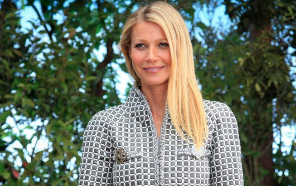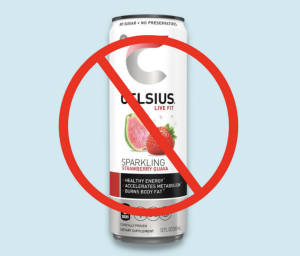Online diet culture: what to expect and what to avoid

The actress has received backlash from the wellness community for her eating habits
April 5, 2023
The modern-day influencer’s lifestyle choices gain more and more psychological real estate in the minds of impressionable consumers as social media becomes increasingly sophisticated.
Short-form content incentivizes creators to churn out as many clips as possible, allowing for misguided fluff to seep through the cracks at a rate faster than what our brains can effectively process. We are constantly consuming personal anecdotes about lifestyle and wellness choices, and most of us are not well-read on these subjects or even have the time to accurately confirm or deny posts’ validity. So, how exactly is online fitness and diet culture influencing us, and what can we do to combat it?
Earlier this month, actress Gwyenth Paltrow went on the “The Art of Being Well” podcast, where she talked about her personal eating habits with the host, Dr. Will Cole. According to Paltrow, she waits until noon to have coffee and the optional bone broth soup to not spike her blood sugar levels. This “lunch” is a part of her intermittent fasting regimen, where she only eats one large meal, “lots of vegetables,” a day.
The podcast clip of her discussing her eating habits made its rounds in the wellness zeitgeist and faced the criticism of many qualified nutritionists for the diet’s lack of substance. The backlash garnered a response from Paltrow about a week later, in which she claims that her nutritionist, Cole, the host of the podcast, recommended this bone broth diet to combat her “long COVID” because it is anti-inflammatory and has “all kinds of protein.”
In Paltrow’s defense, she did claim she does not eat like this every day, but that was only clarified until after the backlash and not during the podcast where she made the initial claims.
What is interesting about Cole and Paltrow’s relationship is that they seem to act more as business partners and less like a doctor-client relationship, considering both of them are selling a book called “Intuitive Fasting.” This book aims to sell you the same diet information that Paltrow talked about in the podcast, giving context as to why she went to clarify her diet claims not long after the backlash.
What is even more interesting is that Cole is not even an MD. He is a doctor of “natural medicine” and a “functional medical practitioner,” meaning that most of his work is holistic and is not backed by decades of medical research like most conventional medicine normally is.
This means that he is just about as qualified as your local chiropractor rather than a fully licensed MD. Cole’s titles allow him to pose himself as being more qualified than he is to those who are unknowing of what his qualifications accurately entail about his expertise.
This relationship represents the business model that has misguided the online health industry for years now. Plaster the face of a conventionally attractive influencer or celebrity that fits a certain body image and market their influence towards a product or book that claims to fast-track you to achieving some health or fitness goal. We see it all the time in products like Sugarbear Hair, Prime, Chris Hemsworth’s fitness app, NLE Choppa’s BBL pills, weight loss pills, and the list goes on.
Knowing that this business model exists, any health advice provided by an influencer should be taken with a grain of salt because most of these influencers’ bottom line is to make money off of your engagement, especially if there is a product behind their claims. For them, they have no incentive to push you towards your wellness goals. In fact, the opposite happens.
A meta-analysis of 63 studies from the Department of Psychology at Ryerson University regarding social-media-borne body image issues suggests that simply using social media is not what is altering one’s body image. In fact, it is how people use social media and what behaviors they tend to engage in — such as “appearance-focused social media use” — that has a negative impact on their body image. Due to social media still being relatively new, most of the research is not developed enough to statistically confirm any causation of social-media-borne body image issues, but considering the frequency and popularity of the influencer-backed health regimen products, beauty filters and face-tuning apps, it is safe to say that there is clearly a large market for people who struggle with their physical self image, specifically within young women.
The content we consume predicates how online fitness and diet culture affects the individual. Albeit avoiding appearance-focused social media is easier said than done because most social media is inherently appearance-focused, regardless of whether you are consuming fitness or diet-related content or not.
So what are your options in avoiding the negative ramifications of online fitness and diet culture? Number one: Know when you are being sold to. If someone is giving you health advice online, dig deeper and figure out if they are attempting to sell you something along with it. If they are, then question its validity. Number two: Only consider what qualified nutritionists and doctors, and their studies, have to say about health-related facts and diets. They have the resources and experience to make these claims, not some random celebrity. Number three: Limit your media usage. If you notice your timeline is cornering you into lifestyle choices through the content it recommends, then block those accounts, ask the app to not recommend those videos, log off and recalibrate.






